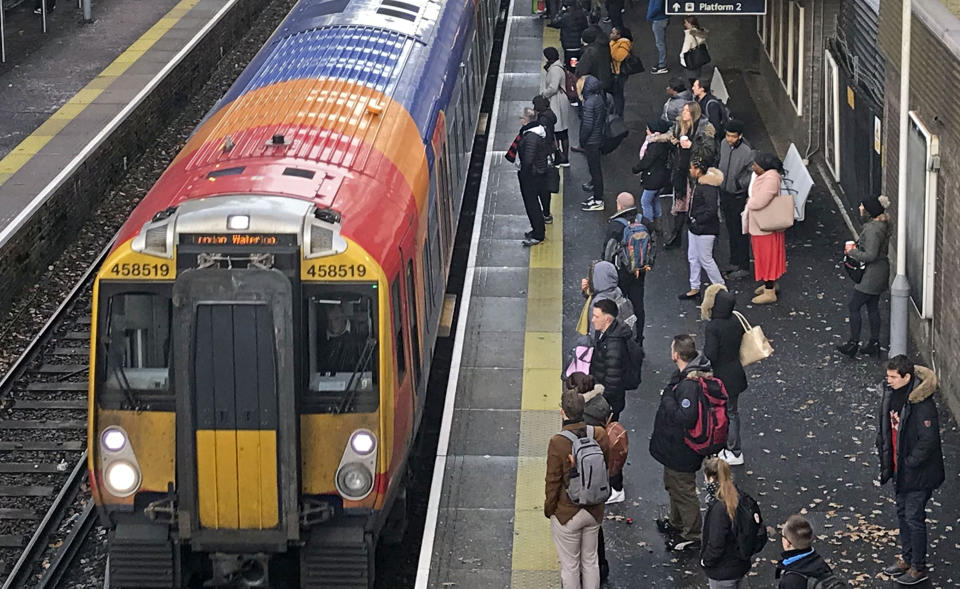Rail passengers face 'another decade of misery' as fares rise by 2.7%

Millions of commuters will have to pay an average of 2.7% more for train tickets from today, despite fewer than two-thirds of trains being on time last year.
The latest price increase will see the annual cost of getting to work increase by more than £100 for some commuters.
The hike in fares comes after a turbulent year for some of the country’s biggest commuter rail networks. South Western Railway passengers were affected by strike action throughout December, while there was extensive disruption to Northern, TransPennine Express, and West Midlands Trains services during much of 2019.
Only 65% of trains arrived within one minute of their scheduled time in the 12 months to December 7, according to data from Network Rail.
READ MORE: UK economy 'limped through' end of 2019, survey shows
Bruce Williamson, of pressure group Railfuture said: “Welcome to another decade of misery for rail passengers.
“How on earth is the Government going to meet its climate commitments by pricing people off environmentally-friendly trains and on to our polluted and congested roads?”
More than half (53%) of rail passengers are not satisfied with the value for money of tickets, according to the latest survey by independent watchdog Transport Focus.
David Sidebottom, director of Transport Focus, encouraged passengers to claim compensation for eligible delays in order to "offset the cost of fare rises.”
Transport secretary Grant Shapps announced that the government would be “putting passengers first,” promising improvements and the creation of a new fund to support trials of more flexible fares across the country.
READ MORE: UK commuters spend £1.8bn a year on train tickets
The Department for Transport is to set out reforms of the railways in a white paper, responding to recommendations of the government-commissioned Rail Review led by former British Airways boss Keith Williams.
The cost of a 12-month season ticket from Shapps’s Welwyn Hatfield seat to London has risen £84 in the new increase, from £3,016 to £3,100.
Robert Nisbet, director of nations and regions for Rail Delivery Group, said rail companies were holding fare increases below inflation while investing in “new trains and extra services that will improve journeys for customers.”
He added that 2020 will see 1,000 extra weekly services and 1,000 more carriages added to Britain’s trains.
About 40% of annual rail price rises are regulated by governments in England, Scotland, and Wales. They are pegged to the Retail Prices Index (RPI) inflation measure for the previous July. Other fare rises are up to train companies.
But RPI inflation is generally higher than the most widely watched measure of inflation, the Consumer Prices Index (CPI). RPI inflation was 2.8% last year.
Passenger groups have repeatedly called for the system to be changed since RPI inflation was abandoned by the National Audit Office as a national statistic in 2013.

 Yahoo Finance
Yahoo Finance 